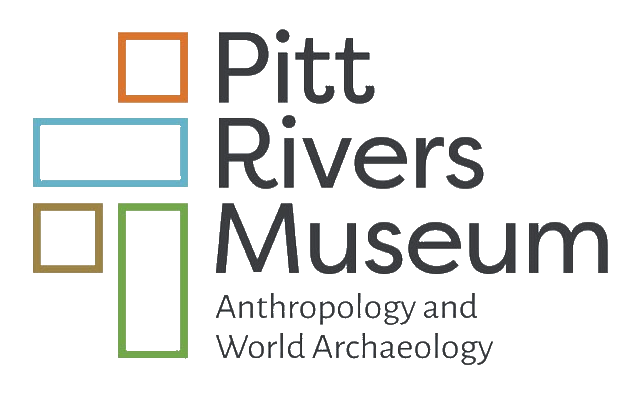Programm 2020 'Matters of Care Museum futures in times of planetary precarity'
How can ethnographic and world
cultures museums use their collections and galleries as spaces which create
active discussion around the impact of humans on the planet, while also
highlighting what long-term perspectives can tell us about sustainability for
developing positive futures? The project TAKING CARE places ethnographic and world
cultures museums at the centre of the search for strategies to address issues
regarding the future of the planet.
Sunday 28 March
17:30 – 19:00 Reception in Pitt Rivers Museum
19:30 Dinner in Oxford
Monday 29 March
The sessions on Monday will focus on biocultural heritage, and cover a range of topics around environmental justice, community conservation and the preservation and representation of environmental knowledge from different global perspectives. Our range of speakers working in communities in various parts of the globe will showcase the diverse ways of documenting and capturing these stories (filmmaking, memory books, quilting, oral histories, museum collections), and look into ways to ensure these processes of learning and gathering are ethical and sustainable. How do we practice what we preach, how do we find ways to do better, and what role should museums like ours play?
Queen’s College Shulman Auditorium
9:00
– 9:20 Welcome from Laura Van Broekhoven, Director of the Pitt
Rivers Museum and Claudia Augustat, Curator at the
Weltmuseum Wien and Taking Care Project Leader
9:20 – 10:00 Wayne
Modest, Professor and Director of the Research
Center for
Material Culture, National Museum of World
Cultures, NL
*KEYNOTE* ‘Spaces of/for Care’
10:00 – 10:20 Questions and Discussion
10:20 – 10:40 Pauline von Hellermann, Senior
Lecturer in Anthropology,
Goldsmiths, University of London, UK
'Reflections from environmental anthropology’
10:40 – 11:00 Iokiñe
Rodríguez Fernandez, Senior Lecturer in
International Development, University of East Anglia, UK
‘Becoming (in) visible in environmental justice struggles:
using
participatory mapping, filming and writing to support
the indigenous research
agenda’
11:00 – 11:30 Tea and Coffee Break, Shulman Auditorium Foyer
11:30 – 12:00 Itandehui
Jansen, Filmmaker and Programme Director,
Film & TV, School of Design, University of Edinburgh, SCT
'Kii Nche Ndutsa (Time and the Seashell)’
12:00—12:40 Lotten Gustafsson Reinius,
Professor of Ethnology,
Stockholm University and Nordic Museum, Stockholm,
SE
and Camilla Andersen,
Documentary Photographer and
Filmmaker, Oslo, NO
‘Eyes on and from the changing Arctic’
12:40 – 13:00 Questions and Discussion for 4 speakers
13:00 – 14:00 Lunch for TAKING CARE Partners and Speakers, Queen’s College Dining Hall
14:00 – 14:40 Naman Ahuja, Professor of Indian Art and
Architecture,
Jawaharlal Nehru University, New Delhi, India
*KEYNOTE* ‘From India IN the World to India AND the World’
14:40 –15:00 Questions and Discussion
Activism is often seen as destructive or iconoclastic: on the contrary, this panel explores how activism can be about caring for communities, environments, their pasts and futures.
15:00
– 16:30 Roundtable Discussion ‘Stolen Culture, Stolen Climate:
new connections in the colonial
museum’
led by Dan Hicks,
Curator and Professor of Contemporary
Archaeology, Pitt Rivers Museum, UK
This panel explores the connections and commonalities between activism, cultural
restitution and the conference theme of "Museum Futures in Times of
Planetary Precarity" with contributions from Onyekachi
Wambu, Executive Director AFFORD- African Foundation for Development,
Roseanne Chantiluke, Independent Researcher, Dr Natasha
Reynolds, Université de Bordeaux, and Dr Chris Garrard, Co-Director,
Culture Unstained
16:30 Refreshment Break, Shulman Auditorium Foyer
18:30 – 19:15 Subhadra
Das, Curator, UCL Science Collections, London,
UK
*KEYNOTE* 'Taking Care of Business: What is a Museum For?’
19:15 – 19:45 Questions and Discussion
20:00 Dinner for
TAKING CARE Partners and Speakers,
Queen’s College Dining Hall
Tuesday 30 March
We will use Tuesday to more practically discuss how we can use our collections and galleries as spaces which create active discussion around the impact of humans on the planet while also highlighting what long-term perspectives can tell us about sustainability for developing positive futures. Can we find practical steps each museum might envision taking that can make a difference now, and what might we learn from each other’s current efforts?
Pitt Rivers Museum
9:30 – 11:00 Breakout groups
Group 1: How do museums of world
cultures transform as places of care in
response to global racial injustice?;
led by TBC
Group 2: Designing and implementing
public programming on climate
change and biodiversity; led by Chris Jarvis, Oxford University
Museum of Natural History, UK
Group 3: How do colonialism and
environmental precarity overlap in your
collection? How does this overlap take
material form?; led by
Alessandra Benedicty, Wayne Modest, and Rita Ouédraogo,
National Museum of
World Cultures, Netherlands
Group 4: What are the practical steps
we can take to reduce waste as
museums and how do we include our visitors in
this process?;
led by Vered Balan,
University of Oxford Sustainability Team and
Ashley Coutu, Pitt Rivers Museum, UK
Group 5: How do communities conserve
local knowledge and traditions
regarding environmental sustainability?; led by Cissy
Serrao,
Quiltmaker and Director of Poakalani Hawaiian Quilt Designs,
Honolulu,
Hawaii, USA
11:00 – 11:30 Tea and Coffee Break
11:30 – 13:00 Breakout group presentations and recommendations to Taking Care partners
13:00 Sandwich Lunch
13:00 – 16:00 TAKING CARE Business Meeting
19:00 Dinner for Conservation Workshop attendees
Wednesday 31 March
Pitt Rivers Museum
9:30 – 16:00 Conservation Workshop, led by Jeremy Uden, Head of Conservation, Pitt Rivers Museum, UK
Specific objectives
- To overcome the Eurocentric approach of conservation
- Developing innovative strategies that think about cultural care and preservation together
- Understanding the needs of objects from an indigenous perspective
- To develop preservation infrastructure both in the participating museums as well as within communities locally and internationally
Expected results
- To find ways of transforming conservation practices into collaborative work
- To learn from best practices and failures
- To enhance value of museum collections through additional insights from outside perspectives
Audiences
- Scholars and university students from different disciplinary backgrounds: conservation, anthropology, museology
- Museum experts: conservators, curators
- Representatives from source and indigenous communities
- Heritage experts outside the West


